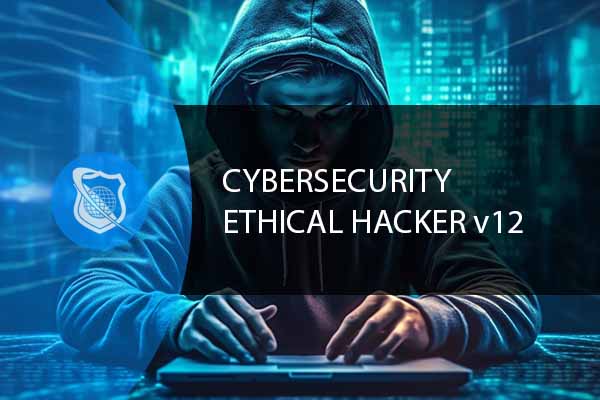What is Git Branching
Definition: Git BranchingGit branching is a feature in the Git version control system that allows developers to create independent lines of development within a repository. Branches enable parallel development by

A Security Operations Center, commonly known as a SOC, is the heart of an organization’s cybersecurity efforts. It is a centralized unit that deals with security issues on an organizational and technical level. A SOC is equipped with a team of security experts and advanced technological solutions that monitor, analyze, and protect an organization from cyber threats.
The role of a SOC team member is diverse and critical. They are responsible for continuous monitoring and analysis of the organization’s security posture. This involves looking for irregularities and potential threats, managing security tools, responding to cybersecurity incidents, and providing real-time security solutions. Their job is to ensure that potential security breaches are identified, evaluated, and addressed promptly.

Propel your career forward and be part of an essential member of any management team as an Information Security Manager. This advanced training series is designed specifically for those want to move up into a management position in the IT field.
A Security Operations Center (SOC) encompasses a variety of specialized roles, each contributing to the overall effectiveness of an organization’s cybersecurity efforts. Let’s explore these roles in more detail to understand their specific responsibilities and the skills they require.

An Information Security Analyst plays a pivotal role in safeguarding an organization’s digital infrastructure and sensitive data. This job involves a blend of technical expertise, vigilance, and continuous learning to protect against ever-evolving cyber threats.
Each of these roles plays a vital part in the functioning of a SOC. They require a mix of technical expertise, analytical abilities, and soft skills. As cyber threats evolve, these roles may adapt and change, underscoring the importance of continuous learning and adaptation in the field of cybersecurity.
A SOC operates 24/7, tirelessly monitoring and defending against cyber threats. The activities within a SOC include:
Working in a Security Operations Center (SOC) demands a specific set of skills to effectively combat cyber threats. These skills can be broadly categorized into technical skills, soft skills, and specialized knowledge. Let’s delve into each category.

Ready to become an unstoppable force in cybersecurity? Our Certified Ethical Hacker V12 course is your gateway to mastering the art of ethical hacking. Dive deep into vulnerability analysis, target scanning, and stealthy network penetration. With hands-on activities and expert insights, you’ll learn to break into target networks, gather evidence, and exit without a trace. Don’t just learn to hack—learn to hack like a pro!
In summary, working in a SOC requires a blend of technical acumen, soft skills, and specialized knowledge. This unique combination enables SOC professionals to effectively protect organizations from the ever-evolving landscape of cyber threats. Continuous education and skill development are key, as the field of cybersecurity is dynamic and constantly evolving.
In conclusion, a Security Operations Center is a critical component of an organization’s cybersecurity framework. The roles within a SOC are diverse, challenging, and require a unique set of skills. As cyber threats evolve, the importance of SOCs continues to grow, making them an indispensable part of modern businesses.
Understanding the key terms related to Security Operations Centers is crucial for anyone working in or interested in this field. SOCs are the heart of the IT security operations in many organizations, and they play a vital role in monitoring, analyzing, and protecting against cybersecurity threats. Being familiar with the terminology used in this area can greatly enhance your understanding of the operations, tools, strategies, and challenges faced in the dynamic world of cybersecurity.
| Term | Definition |
|---|---|
| SOC (Security Operations Center) | A centralized unit that deals with security issues on an organizational and technical level. |
| SIEM (Security Information and Event Management) | A solution that provides real-time analysis of security alerts generated by applications and network hardware. |
| Incident Response | The approach taken by an organization to prepare for, detect, contain, and recover from a data breach or cyber attack. |
| Threat Intelligence | Information used to understand the threats that have, will, or are currently targeting the organization. |
| Intrusion Detection System (IDS) | A device or software application that monitors a network or systems for malicious activity or policy violations. |
| Intrusion Prevention System (IPS) | A network security/threat prevention technology that examines network traffic flows to detect and prevent vulnerability exploits. |
| Vulnerability Management | The process of identifying, evaluating, treating, and reporting on security vulnerabilities in systems and the software that runs on them. |
| Endpoint Detection and Response (EDR) | A cybersecurity technology that addresses the need for continuous monitoring and response to advanced threats. |
| Firewall | A network security device that monitors and filters incoming and outgoing network traffic based on an organization’s previously established security policies. |
| Malware Analysis | The process of studying the behavior and characteristics of malicious software. |
| Cyber Threat Hunting | Proactive searching through networks to detect and isolate advanced threats that evade existing security solutions. |
| Log Management | The process of collecting, analyzing, storing, and disposing of computer security logs. |
| Network Security | Measures taken to protect the integrity of a network and its data from attack, disruption, or unauthorized access. |
| Penetration Testing | An authorized simulated cyberattack on a computer system, performed to evaluate the security of the system. |
| Compliance Auditing | The process of checking if a company’s internal policies and procedures, as well as external regulatory requirements, are being followed. |
| Security Policy | A set of rules and practices that specify or regulate how a system or organization provides security services to protect sensitive and critical system resources. |
| Patch Management | The process of managing a network of computers by regularly applying patches to the software. |
| Security Architecture | The design artifacts that describe how the security controls are positioned and how they relate to the overall information technology architecture. |
| Data Encryption | The process of converting data or information into a code to prevent unauthorized access. |
| Phishing | A method of trying to gather personal information using deceptive e-mails and websites. |
This list represents a foundational set of terms that are essential in the field of Security Operations Centers and cybersecurity. Understanding these terms can significantly enhance one’s ability to grasp the complex and evolving nature of cybersecurity threats and the measures taken to combat them.
The primary function of a SOC is to continuously monitor and analyze an organization’s security posture, detect, investigate, and respond to cybersecurity incidents, and ensure overall network and information security. This includes managing and coordinating the response to breaches, threats, and vulnerabilities in real-time.
A SOC specifically focuses on cybersecurity threats and incidents, whereas a traditional IT department manages a broader range of IT services and infrastructure. While there is some overlap, such as in network management, SOCs are specialized units dedicated to proactive and reactive cybersecurity measures.
Yes, small businesses can benefit significantly from SOC services, as they are equally, if not more, vulnerable to cyberattacks compared to larger organizations. Smaller businesses might opt for outsourced SOC services or cloud-based security solutions tailored to their size and needs.
SOCs use a variety of tools and technologies, including Security Information and Event Management (SIEM) systems, intrusion detection systems (IDS), firewalls, antivirus software, vulnerability and compliance management tools, and advanced threat protection technologies.
Career progression in a SOC typically starts from roles like Security Analyst or Incident Responder. With experience and additional skills, individuals can advance to senior analyst positions, specialize in areas like threat hunting or cyber intelligence, or move into managerial roles such as SOC Manager or Security Architect. Continuous learning and professional certifications play a crucial role in career advancement in this field.
Lorem ipsum dolor sit amet, consectetur adipiscing elit. Ut elit tellus, luctus nec ullamcorper mattis, pulvinar dapibus leo.
$49.99 Original price was: $49.99.$16.99Current price is: $16.99. / month with a 10-day free trial
Definition: Git BranchingGit branching is a feature in the Git version control system that allows developers to create independent lines of development within a repository. Branches enable parallel development by
Definition: User InstanceA User Instance is a specific occurrence of a user session or a single user profile within a software application or system. It refers to the representation of
Definition: HTTP PipelineHTTP Pipeline is a feature of the HTTP/1.1 protocol that allows multiple HTTP requests to be sent on a single TCP connection without waiting for the corresponding responses.
Definition: Virtual Machine ImageA Virtual Machine Image (VMI) is a file that encapsulates the entire state of a virtual machine at a given point in time. This includes the operating
Definition: Item Response Theory (IRT)Item Response Theory (IRT) is a modern approach to test scoring that models the relationship between an individual’s performance on a test item and their underlying
Definition: Cloud Reference ArchitectureCloud Reference Architecture (CRA) is a framework that provides a structured approach to designing and implementing cloud computing solutions. It outlines best practices, guidelines, and standards to
Definition: MPL (Microsoft Public License)The Microsoft Public License (MPL) is a free and open-source software license created by Microsoft. It allows software to be freely used, modified, and distributed, provided
Definition: Google ColabGoogle Colab, short for Google Colaboratory, is a free, cloud-based platform provided by Google that allows users to write and execute Python code in a Jupyter notebook environment.
Definition: Recursive FunctionA recursive function is a function in programming that calls itself within its own definition to solve a problem by breaking it down into smaller, more manageable sub-problems.
Definition: Wrapper FunctionA wrapper function is a function that encapsulates another function, modifying or extending its behavior. The primary purpose of a wrapper function is to add additional functionality or
Definition: Software Design PatternA software design pattern is a general, reusable solution to a commonly occurring problem within a given context in software design. It is a template for how
Definition: CISSP (Certified Information Systems Security Professional)The Certified Information Systems Security Professional (CISSP) is a globally recognized certification in the field of information security. It is designed to validate an
ENDING THIS WEEKEND: Train for LIFE at our lowest price. Buy once and never have to pay for IT Training Again.